Open UK at COP26

I spent last Thursday at COP26 - as part of the Open UK delegation. It was an amazing day - which filled me with hope. As it was my first large in-person event since the Before-Times, I was extremely nervous about how it would go. Thanks to the Herculean efforts of Amanda Brock, May Cheung and their small army of volunteers it was a flawless event - all held in a magnificent set of tents.
Here are a few of my highlights from the day:
An excellent question posed in the session about future technology. "Do we need lower latency? Or do we need more latency tolerant infrastructure?" Delivering 5G infrastructure has an environmental cost. It might be more environmentally friendly to process data in an area with lots of solar power - which could mean higher latency for some applications. Is that a worthy trade-off? Probably not for autonomous vehicles, but there are plenty of services which could be more delay tolerant.
I was introduced to Humanium - a "new" form of metal made from illegal weapons.
Melt down a couple of AK-47s and you get this intriguing lump of art:
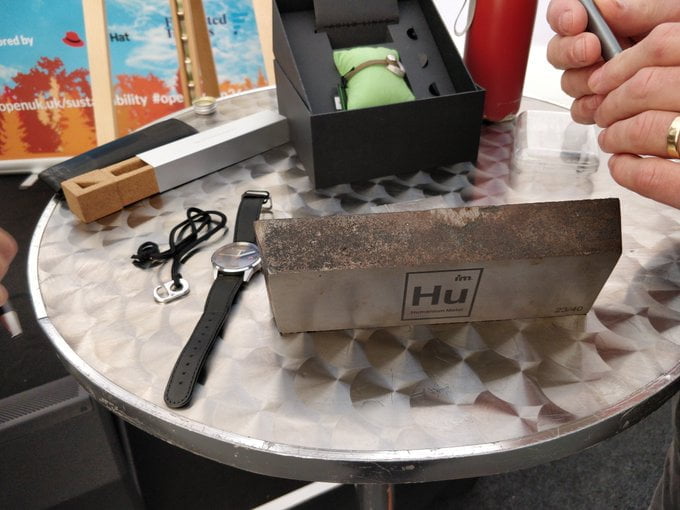 The artist Frank To uses it to create artworks, the sale of which helps victims of violence.
The artist Frank To uses it to create artworks, the sale of which helps victims of violence.
Some of the young people there were showing off their open-source and open-hardware air-quality monitoring solutions:
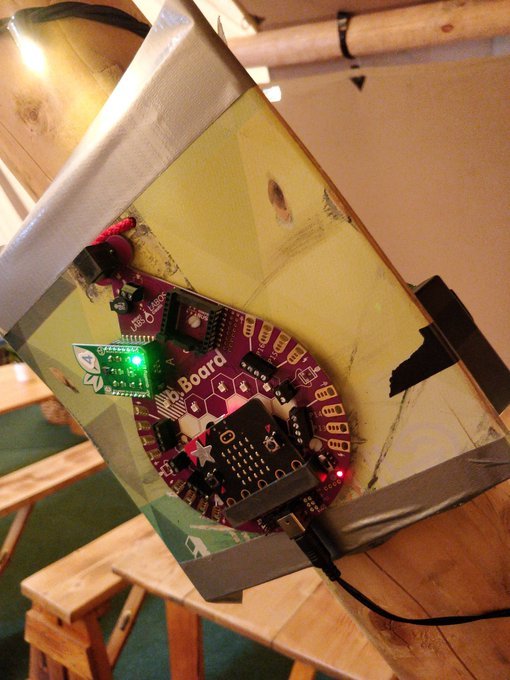
Monitoring carbon dioxide levels in a room is a good way to tell if enough fresh air is getting in. Vital in these times of Covid. Sensors can also detect particulate matter, pollution, and other environmental concerns. Could every teenager carry a Raspberry Pi powered "dosimeter" to measure their personal risk levels?
Speaking of Youths™ - Open UK is sending out these Mini Mu Gloves:
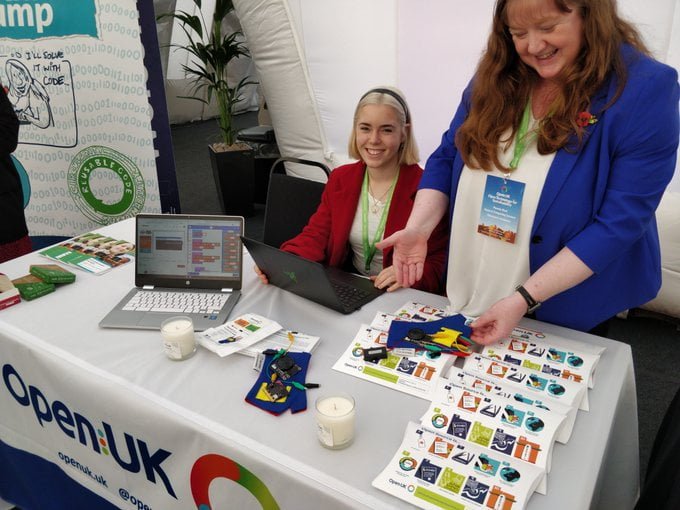
They integrate with the Micro-Bit and allow kids to learn the basics of hardware and software. Such a tangible way to understand the way computers work - and an excellent way to indoctrinate promote the open principles. It's great seeing how the community is helping create resources for these projects.
Micro-Bits have Bluetooth - this means they can exchange data. Which turns into a fun game to demonstrate how viral transmission works, and the problems with contact tracing. Topical!
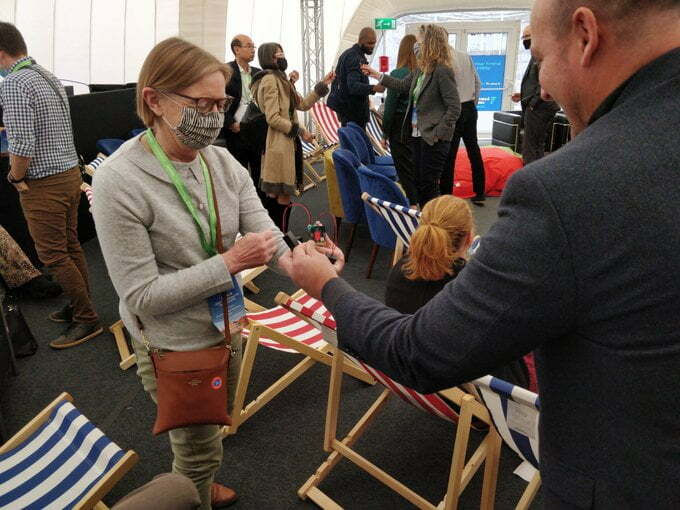
There were several other pieces of art dotted around - including this chunk of ice-cap, slowly melting.
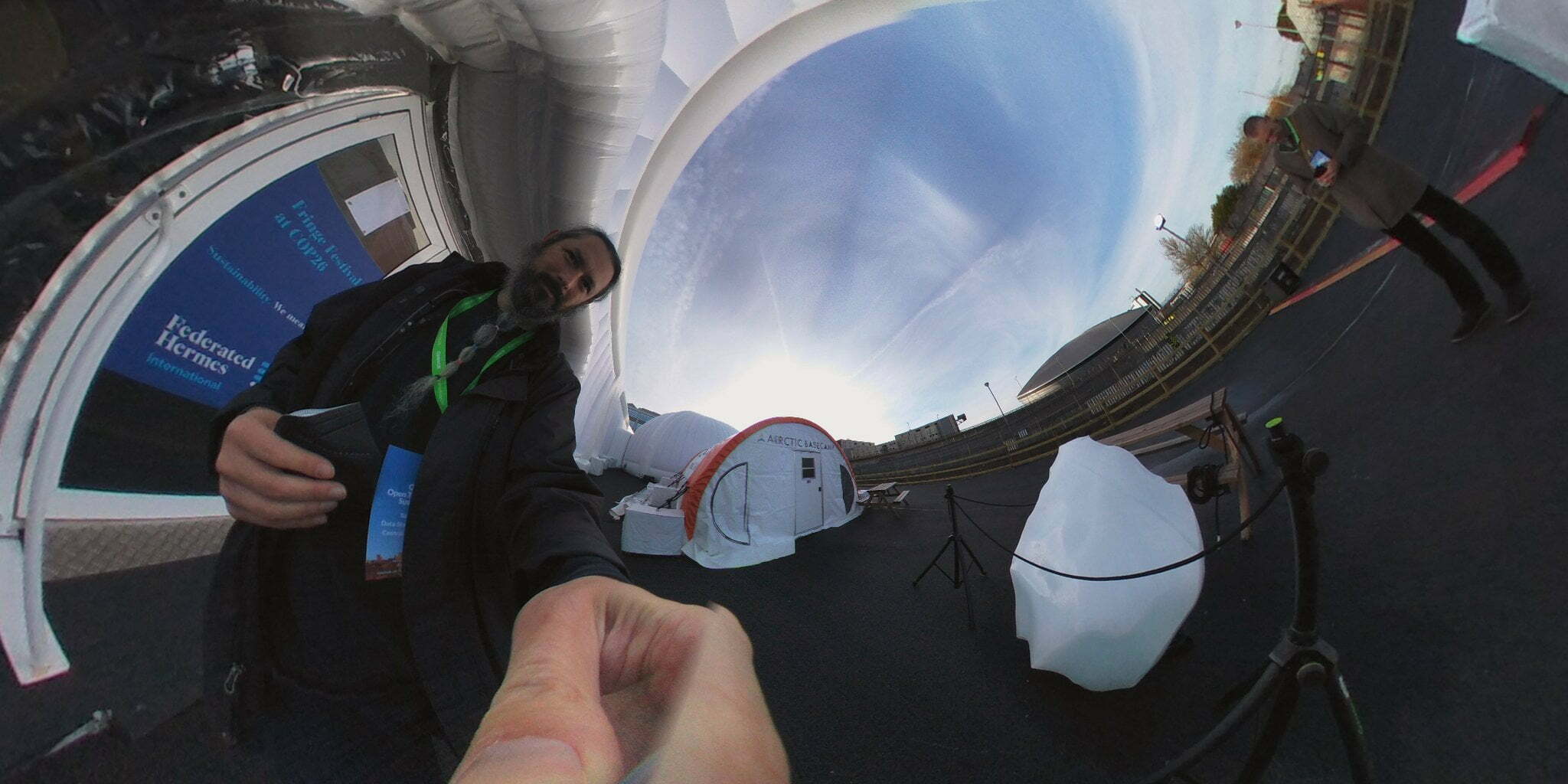
A full house for Lord Maude's talk
It was a moving talk about the setting up of GDS - and about how the future has to be more open. Even seemingly "dull" things like supply-chain transparency can have a profound impact if they are subject to scrutiny.
I also went out to see some of the protests outside the Green Zone:
Naturally, lunch was all vegan and delicious. Held inside a gorgeous tent:
Brilliant panel about the energy challenges of the future. Electric Vehicle infrastructure requires massive amounts of open data and interoperable standards.
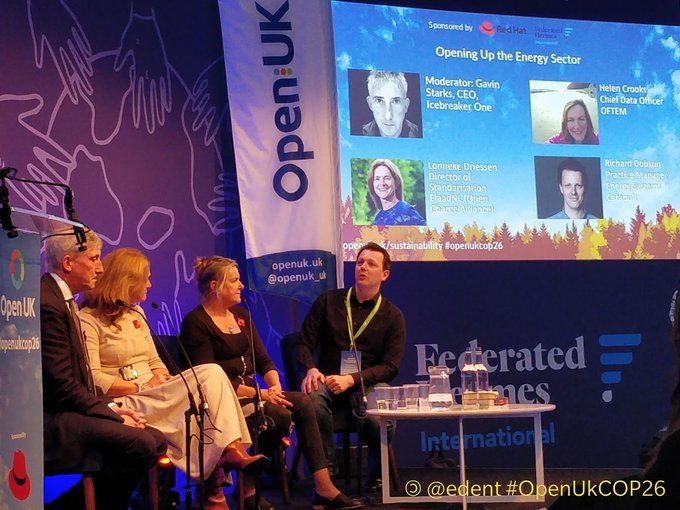
Not just chargers - although that's important for balancing the grid - but also the way in which we communicate the way vehicles use the road and how they are taxed.
Another panel looked at how we measure the efficiency of data centres.
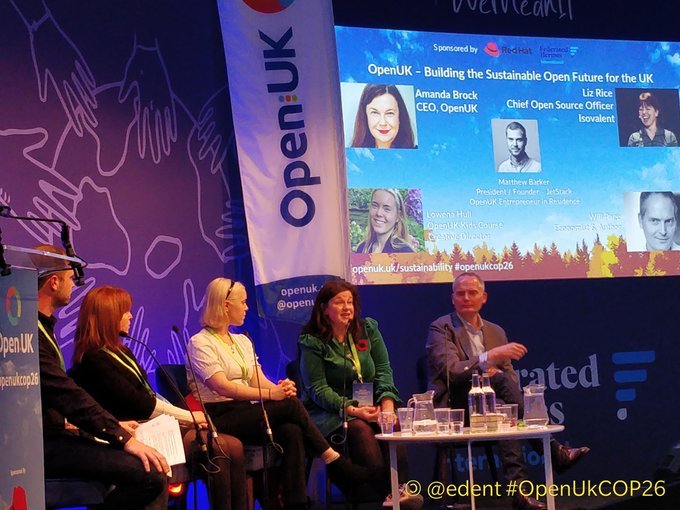
Another interesting economic question - what's the economic impact of something like Wikipedia? How do you measure its environmental impact? Luckily, Dr Thomas has the answers!




Before the award dinner, we were treated to a full Highland pipe band! Warning - this is loud! (You can drag the video around. Should also have 5.1 surround sound.)
With everyone suited and booted, we started the ceremony.
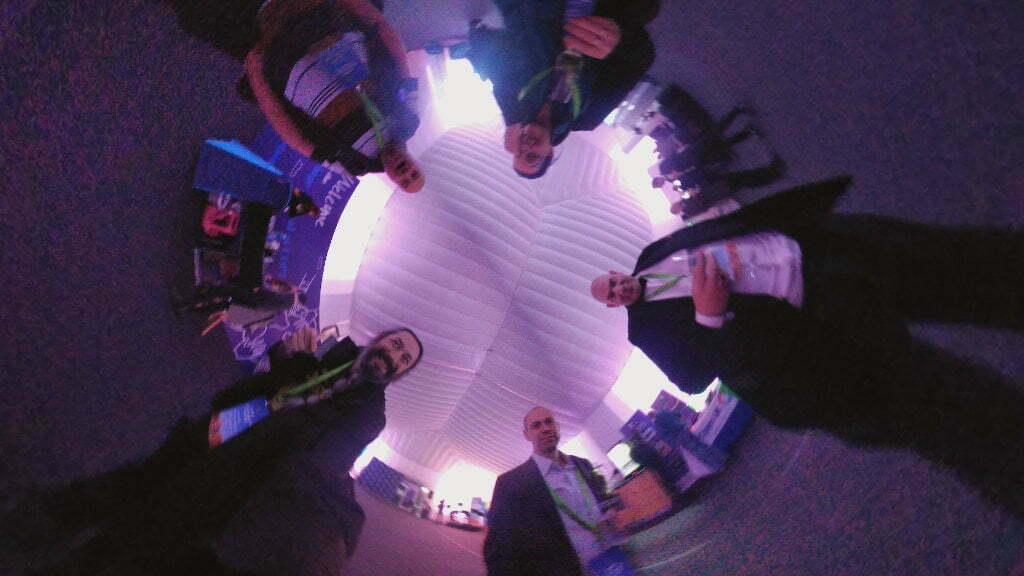
I was beyond delighted that my friend Adam Fowler won an award for all his hard work on the Herald Bluetooth Protocol.
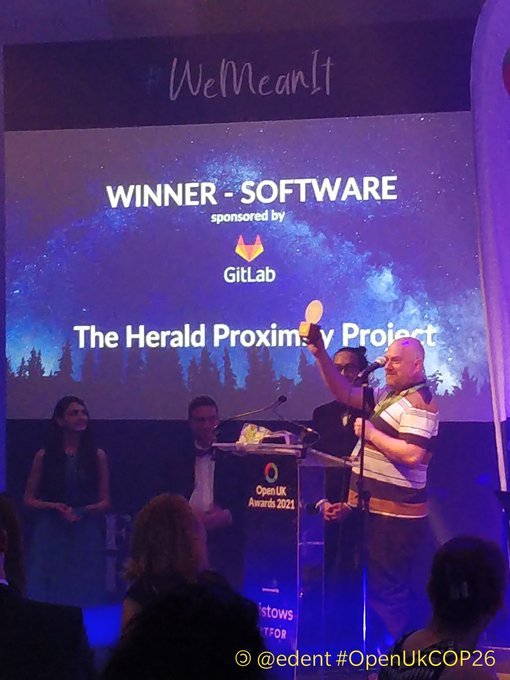
The rest of the evening, I must admit, is a bit of a blur. Do I really remember a rock-and-roll band supplemented with Bagpipes playing Money for Nothing?!
And, obviously, tending to the next day's mild0 hangover, with AOC's new favourite tipple!
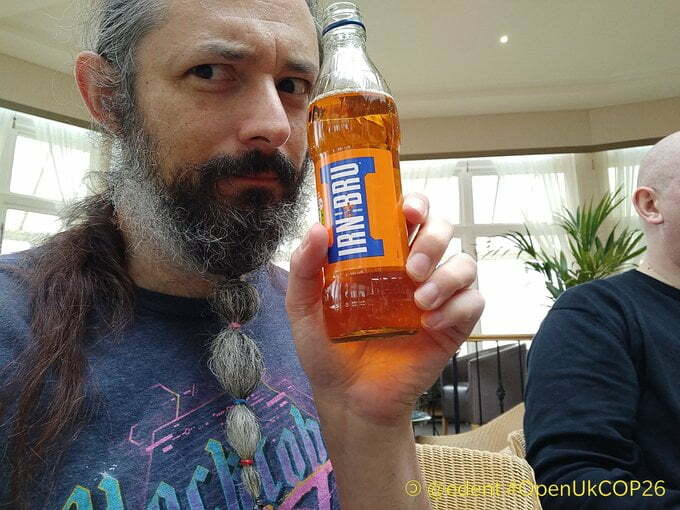
And then...
Will #COP26 make a difference? I don't know. What I am sure of is that all the people attending our event were passionate and dedicated to the cause of openness. We may have different ideas of how best to accomplish the radical transparency needed to protect the planet - but we know that it needs doing. Open algorithms means more energy efficient computers. Open data makes it easy to spot pollution before it is too late. Open sensor platforms increase the amount of data we have about the natural world. Open hardware democratises access to education. Open curricula ensure students of the future understand the power of open source.
Thank you to everyone who gave their time and energy to this amazing event. I'm proud to be a board member of such a brilliant organisation.
-
Ouch! OWWWWW! ↩︎
| Reply to original comment on twitter.com
| Reply to original comment on twitter.com